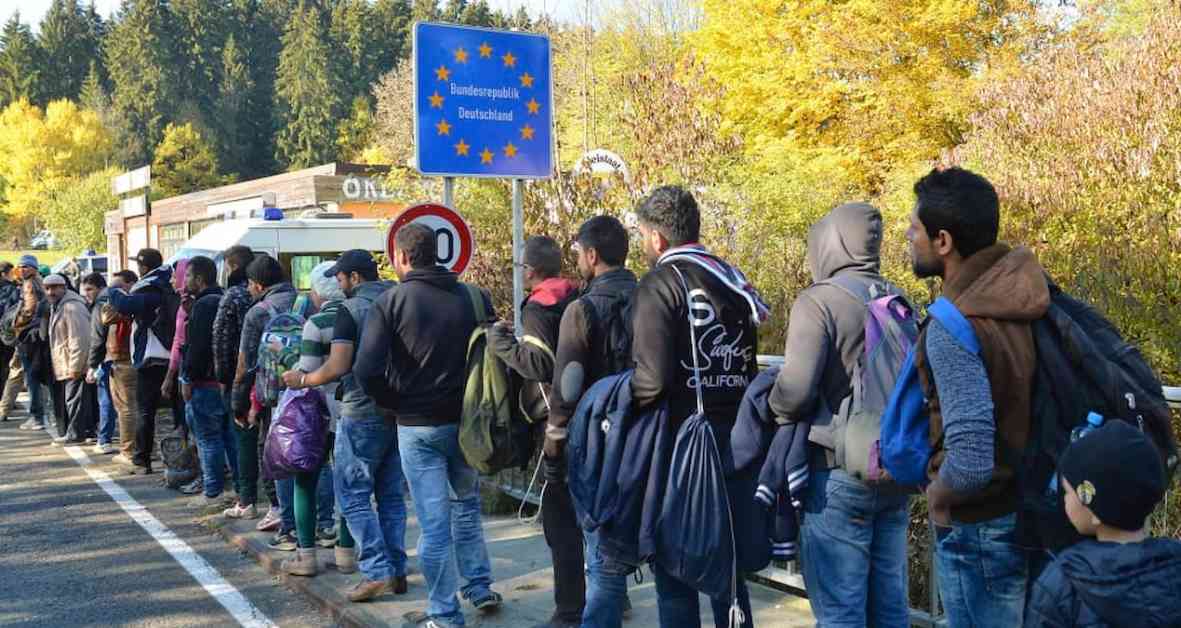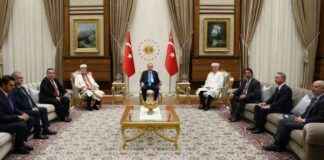Mini Summit in Europe to Address Influx of Turkish Immigrants
In response to the surge in Turkish immigrants entering Europe, Germany has suspended the Schengen visa and implemented border controls across all land borders. German Chancellor Scholz expressed concern over the potential strain on the freedom of movement and the burden that irregular migration could place on the country. Scholz personally reached out to neighboring country leaders, emphasizing the need to address the extraordinary influx of irregular migration into Germany.
Wide-ranging Powers Granted to Police
The border controls are aimed at preventing illegal migration into the country, with the police being granted extensive powers at border crossings. The border police have been instructed not to allow entry to individuals such as Turkish nationals without the right to asylum, those with previous issues in Germany, individuals with ongoing investigations, and those who have first set foot in another EU member state. Even individuals with valid visas may be turned away at the border, in accordance with EU laws.
The Chance for Illegal Turkish Immigrants is Diminishing
Initially, around 5,000 individuals were denied entry, mostly consisting of Turkish nationals with limited asylum rights. However, among them were also individuals from Tajikistan, Uzbekistan, Syria, Afghanistan, Iraq, and various African countries. Chancellor Scholz, who recently signed an agreement with Uzbekistan for the return of those who entered Germany illegally, reached out to other leaders such as the Prime Minister of Poland, Austria, and Luxembourg, reassuring them of Germany’s commitment to both EU laws and necessary border controls.
Engagement with Other Leaders
Scholz highlighted to his counterparts the significant number of irregular migrants arriving in Germany and emphasized the need for tighter migration controls. He is scheduled to meet with leaders from the Netherlands, Belgium, the Czech Republic, Denmark, as well as the President of the European Commission, Ursula von der Leyen, to discuss further measures to manage the influx of migrants.
Impact on the European Union
The influx of Turkish immigrants has not only raised concerns in Germany but also across the European Union. Countries like Austria and Poland have expressed support for Germany’s border control measures, citing the need to protect their borders from irregular migration. The European Commission has also been closely monitoring the situation and is expected to collaborate with member states to address the issue collectively.
Humanitarian Considerations
While tightening border controls is necessary to manage migration flows, it is essential to consider the humanitarian aspect of the situation. Many of the individuals attempting to enter Germany are fleeing conflict, persecution, or seeking better economic opportunities. It is crucial for European leaders to strike a balance between security measures and upholding human rights obligations, ensuring that those in genuine need of protection are not turned away.
Future Steps
As the summit progresses, leaders are expected to discuss long-term solutions to manage migration flows effectively. This includes enhancing cooperation with origin and transit countries, strengthening border control mechanisms, and improving the asylum process to expedite decisions for those in need of protection. The aim is to create a more sustainable and humane approach to migration management that respects the rights of individuals while safeguarding the security of European nations.
In conclusion, the mini summit in Europe to address the influx of Turkish immigrants reflects the complex challenges faced by countries in managing migration flows. By engaging in dialogue, collaboration, and implementing strategic measures, European leaders aim to strike a balance between security concerns and humanitarian considerations to ensure a sustainable and effective approach to migration management.





















